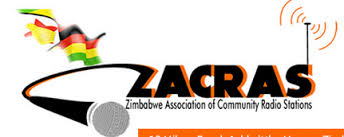By Byron Mutingwende
The generality of Zimbabweans have expressed dismay over the recent increase in mobile data tariffs put into effect by the Postal and Telecommunications Regulatory Authority of Zimbabwe (POTRAZ).
In a statement Thursday, Crisis in Zimbabwe Coalition (CiZC) said the increase by over 2 500% had all but confirmed that the Zimbabwean government had ntensified its efforts to close the democratic space especially as we head towards the 2018 polls.
“It is undeniable that social media had become a cheap medium of communication for impoverished Zimbabweans and at the same time provided a platform for discussion of issues of national concern such as democracy and development.
‘Fully aware of the power of social media to mobilize citizens towards democracy and development, the failed Zimbabwean government, fully aware of the effects of their failure to improve the livelihoods of impoverished Zimbabweans, has resorted restricting access to information by concerned citizens,” CiZC said.
CiZC said that the Zimbabwean government has largely depended on propaganda hence efforts to limit citizens’ access to alternative sources of information.
They said that this played out on how the government issued out radio licenses on a partisan basis and as an attempt to block alternative voices or sources of information.
CIZC contends that every Zimbabwean has a right of access to correct information hence closing out other alternative sources of information is unconstitutional.
The mobile data tariff hikes effectively means that access to information in Zimbabwe has been made a preserve of the elite yet it is a constitutional right that ought to be respected.
Section 61 (1) (a) of the Zimbabwean constitution is clear that every person has the “freedom to seek, receive and communicate ideas and other information”.
“CIZC implores the Zimbabwean government to desist from implementing political decisions that serve the interests of ruling party politicians while infringing on citizens’ fundamental rights.
Access to information is a pre-requisite for development and the recent move to increase mobile data tariffs works against efforts towards a democratic developmental state.
CIZC said that the government directive ought to be challenged using all available channels.
The Zimbabwe Association of Community Radio Stations (ZACRAS) also expressed concern over the move by POTRAZ.
“The move, coming as it does when the Cyber and Computer Crimes Bill whose import and spirit aims to curtail citizens’ freedom of expression and access to information rights, is unfortunate. The untimed action by POTRAZ is clear evidence that the government of Zimbabwe is determined to violating citizens’ rights to access to information and freedom of expression,” ZACRAS said.
ZACRAS said the situation was exacerbated by the fact that other media platforms and sources of information like print media are already beyond the reach of many, with the majority of citizens resorting to the use of such platforms like WhatsApp for sharing information.
In that regard, ZACRAS said the move was anti-people and could only be made by a government that did not have a subsisting contract with citizens.
Human rights defender, Linda Masarira called for the decommissioning of POTRAZ citing its disregard for promoting the free flow of information.
“Social media is a tool for communication and development and it should be regarded as such, especially by the regulator. Competition must influence tariffs hence communication must get cheaper not expensive,” Masarira said.
POTRAZ has pegged bundles at a minimum of 2 cents per megabyte. $1 is equivalent to 50 megabytes.
In a country with 75% of its population living below the poverty datum line, the increase in charges will lead to non-participatory citizenry, which is detached from development initiatives.
Following the development, Econet Wireless has set the price of 1, 5GB data at $25 and 1GB at around $23, 50. Compared to other countries in the region like Tanzania, 1GB is available at a cost of $0,89, Egypt at $2, 82 and Mozambique at $2, 87.
Such is evidence that POTRAZ should work towards meeting regional standards and reduce the gap of access to information between the rich and the poor. Internet access is a human right, and it is the role of the government to uphold human rights. We would like to urge the government, through POTRAZ, to revise its decision,” ZACRAS said.
